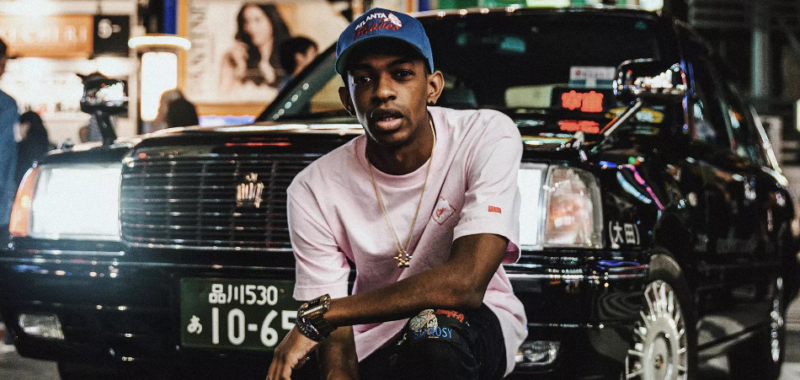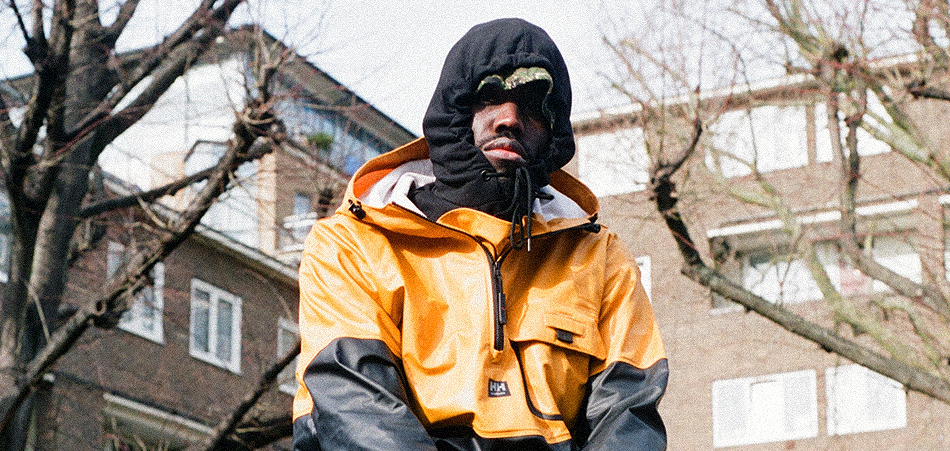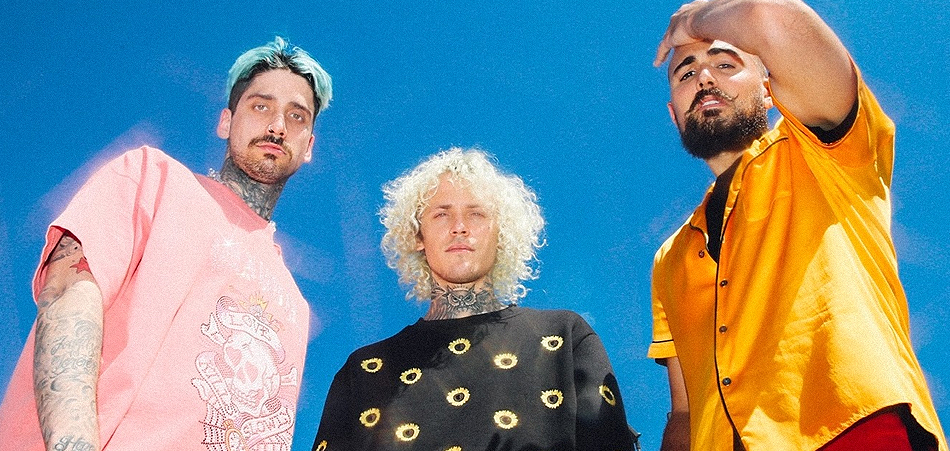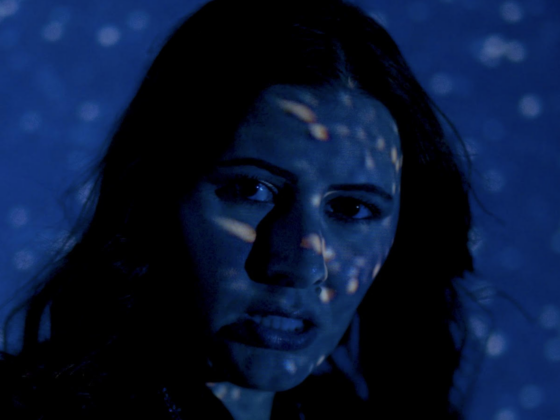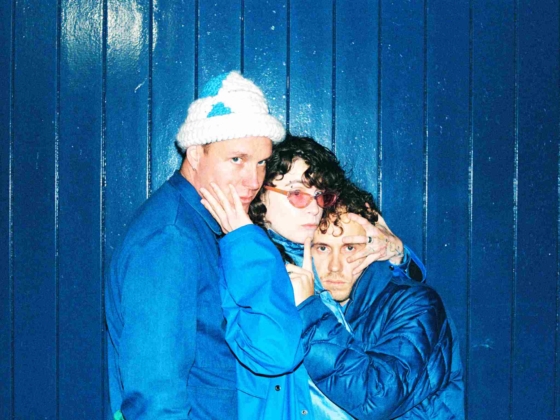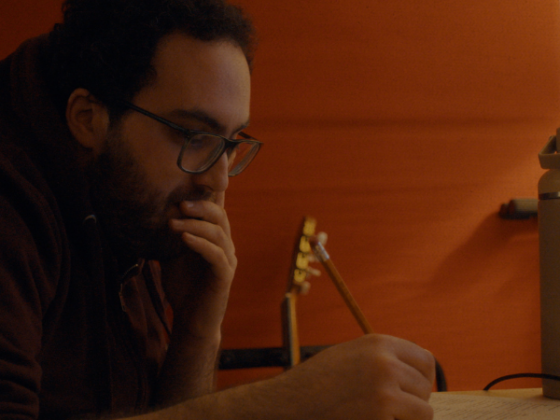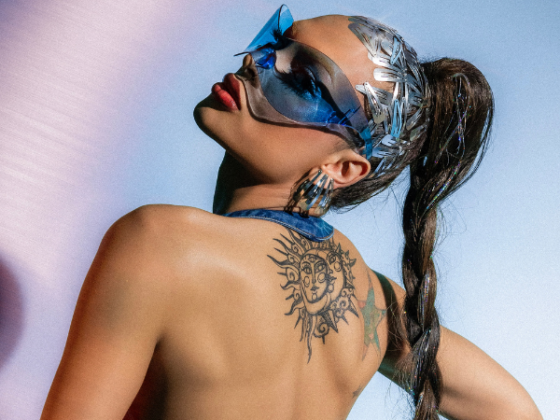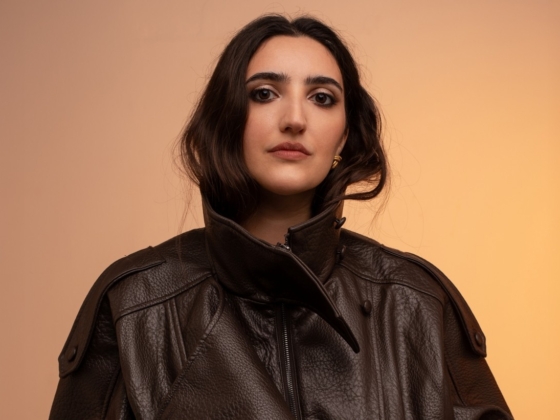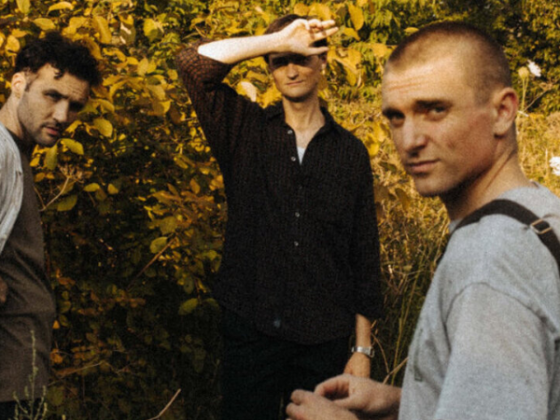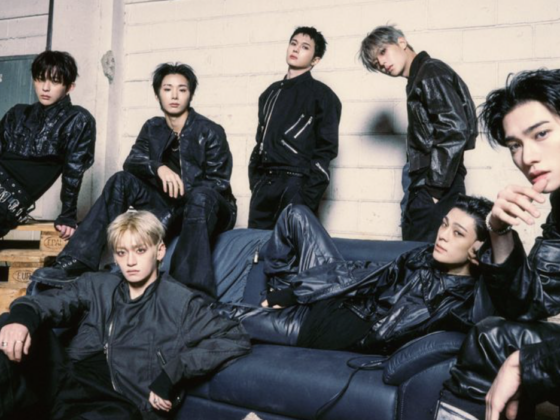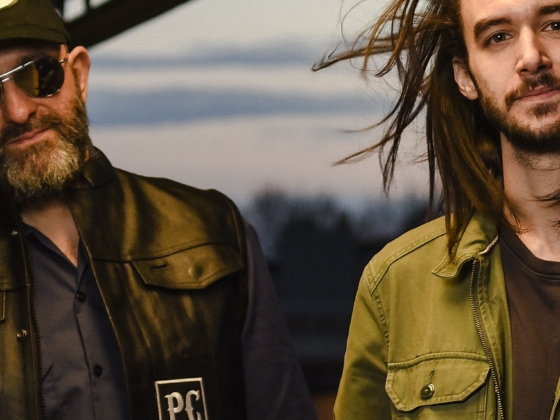Ace Hashimoto is an anomaly in the current music landscape. He is difficult to categorise and feels no pressing need to change that. He is about to release his debut solo album Play.Make.Believe on Onra’s Nothing But Net label, having released three singles from it thus far (“VAPORWAVES”, “GIRLS” and “O.M.W”). “I’m super happy with the reception," shares Hashimoto in an exclusive interview with EARMILK. "I’m very grateful that anybody’s even listening. When you make music, you make it for yourself mostly and then if people happen to take it to it that’s always really rewarding.”
This music-first philosophy is scant on the ground at the moment so it’s reassuring to hear artists like Hashimoto are still putting the art first. However, in true artist style, he shared that this may be his first and last album, as he doesn’t feel the life of a full-time musician is for him. For a singer and producer with as much talent and promise as him to already be talking about taking a back seat shows remarkable self-awareness and integrity—qualities scorned and scoffed at by a hip-hop generation that doesn’t want to be aware of anything, let alone the divided self.
Hashimoto was outgoing, forthcoming and glibly honest during our conversation, happy to get stuck into a variety of topics. His straightforward demeanour and humility both make it extremely easy to root for him in the music industry he has navigated and grown weary of, an industry which uses some intangible metric to decide on who they will propel to stardom, an industry which tries to sand down all edges of individuality for a smoother sell.
Hashimoto started out as a producer, attaining a comfortable degree of success making beats for artists like SZA, Chance the Rapper and Mac Miller. The singing was a later addition. “I’ve been doing production out the gate but I never had the confidence that I had a voice that was good enough to actually put on a record. The confidence came from working with certain friends who heard me messing around and said “Yo man, your voice is actually pretty good, I think if you worked it at you could be an R&B artist”, and just hearing that from people I respected told me that maybe I do need to work on this a little more, that maybe this dream wasn’t so far deferred as I thought.”
The sound of Play.Make.Believe is clearly based on the music he grew up on, mixed with his current sound, forged from these same influences. The album title has a couple of meanings to him. “Play.Make.Believe sounds nostalgic, how you would play make believe as a kid. But it also means the steps you take when you’re approaching some big goal. First you play around with it, then when you start to create more you start to believe in that product and where it could possibly go. It’s me showing the experiences I had as a youngin’ because that’s what made me into who I am today musically.”
Newer fans have accused hip-hop of being too rooted in its own past and traditions, older fans have accused it of straying too far away from its original ethos. When I asked for his opinion on this, he is typically diplomatic. “I would say there’s a good balance. Certain generations pay homage a lot more than others. I grew up in the blogosphere so when I was coming up Lupe Fiasco and Kid Cudi were popping, and that generation paid a lot of homage. They did a lot of sampling, they did a lot of collaborations with guys they grew up on, whereas the current generation of music don’t really do that. I don’t think there’s anything wrong with it, it’s just certain generations pay more homage than others. You won’t see Migos getting 50 Cent on a record just because they grew up listening to him. They focus on their current community. It’s all cyclical, it’ll come back around again.”
The first single from the album was “VAPORWAVES”, a philosophically funk-driven number featuring recent Grammy-winner Thundercat. It turns out he and Thundercat go back a lot further than this collaboration. “Me and Thunder had been friends for years before that. I lived in Japan for 2 years, we met when we both lived in L.A. but when he came to Japan we spent a lot more time together. Whenever he was in town, I would be his translator because my Japanese isn’t the best but it’s definitely better than his, so we’d spend a lot of time in the clubs hanging out. When I started work on this album, I knew I wanted to reach out to do some musical stuff with him. I found the “VAPORWAVES” beat and he already had the bassline and humming part already, so I came through with the production and added my verse. He kicked it off, he alley-ooped it and I dunked it and ran with that point.”
When I asked Hashimoto about Thundercat’s much lauded Grammy win, he lit up. “Oh man, I text him immediately. I was super proud of him because I felt like it was overdue. This album was good but I thought the Drunk album definitely should have gotten a Grammy. I get how it goes in the music industry, you need to bolster your clout up to a certain level for them to notice you. It’s not even 100% based on that project per se, it’s about what you’ve done to get to that point. It’s like when Denzel won that Oscar for Training Day, we all know he’s had better movies than Training Day but it was just his time. That’s what it was with Thunder, he’s had great projects before this last one but this is the one that got their attention.”
The lyrics on “VAPORWAVES” are very existential and muse on the nature of mortality. It turns out that these are very real concerns for him, and they had a profound effect on his life and career. “The reason I was so sporadic with releasing music after 2017 was I was dealing with a lot of existential crises, realising how short life is and trying to figure out what matters to me the most and going through that journey. The turning point was really the moment that XXXTentacion died. When he died, for some reason it just changed me and I was never really able to live the same way. I think I’ve found a good balance now, being able to enjoy the moment even while knowing that these moments are very transient.”
When Hashimoto was disillusioned and ready to turn his back on music, the legendary producer Onra encouraged him to keep at it, promising his support for any solo project he put out, eventually putting it out on his imprint. “I wouldn’t be here talking to you now if it wasn’t for Onra, I would have given up. I had no motivation to make new music, I was just tired of doing what I was doing. Onra really gave me the confidence and belief and said if I did a project he’d be behind it 100% and put it out on his label. I’d never tried releasing a project for a label and having a team and trusting them to make some of those important decisions, so I wanted to give it a fair swing. Onra is the label owner, but he’s a legend too and I’ve learned so much from him musically. I never would have thought I’d make such a strong connection with him but he’s very important in my life.”
In recent years there has been a resurgence in soulful hip-hop from artists like Chance and Anderson .Paak, but Hashimoto doesn’t place Play.Make.Believe in this category. “I wish I could fit into a lane that pre-existed, I’ve tried to do that so many times but I’m just too fucking weird and it never works out. When you listen to Anderson’s music, it’s reminiscent of certain eras of soul, Chance has that gospel soul feel and its very obvious and clear. Whereas you could listen to a record of mine and I’m doing a Kool and the Gang cover, the next one sounds like DeBarge, the next one sounds like it was pulled directly from Pharrell’s hard drive, the next one sounds like lo-fi beats to do your homework to. I’m a little bit too everywhere to be anything.”
Before we concluded our conversation, I asked if he was considering branching out into any other disciplines. His response was enthusiastic and unexpected. “Yeah, I want to put my energy into videos for my Youtube page. There’s so many parts of my brand that are more than music. I’m obsessed with horror movies and I’d want to dip into that more, with my Youtube page it would be easier to do. It’s hard to be an R&B horror head.” The struggle is real, and a possible new T-shirt slogan is born. I did the obvious and asked him for his favourite horror film. “It’s called Happy Birthday To Me, and no one has seen it. I’m obsessed with vintage horror. Happy Birthday To Me is an amazing movie, it’s got this twist ending that I couldn’t guess. It’s this dope 80s flick, if you like cheese you’ll get into it. It’s not like Insidious or the new wave of horror so you’re not gonna be scared, but there’s a lot of over the top gore.”
Ending an interview on obscure '80s cult slasher flicks is how I would like to conduct proceeding henceforth with every artist I talk to. For Hashimoto, it's just another idiosyncrasy which makes him such a compelling figure. Make sure you cop Play.Make.Believe on 21 May, it may be the only way to harangue him into continuing to release music.
Connect with Ace Hashimoto: Instagram | Twitter | SoundCloud | Spotify

